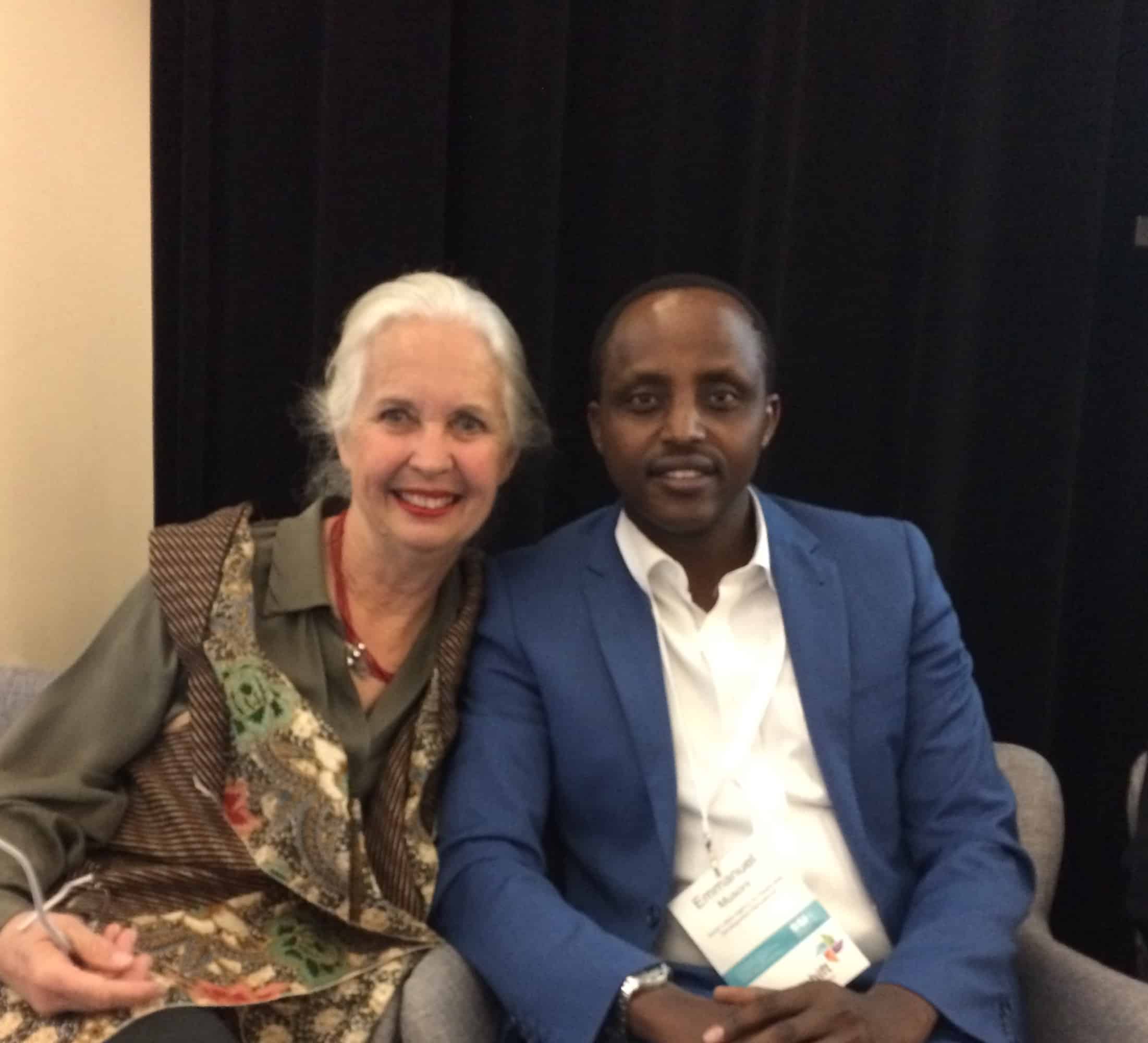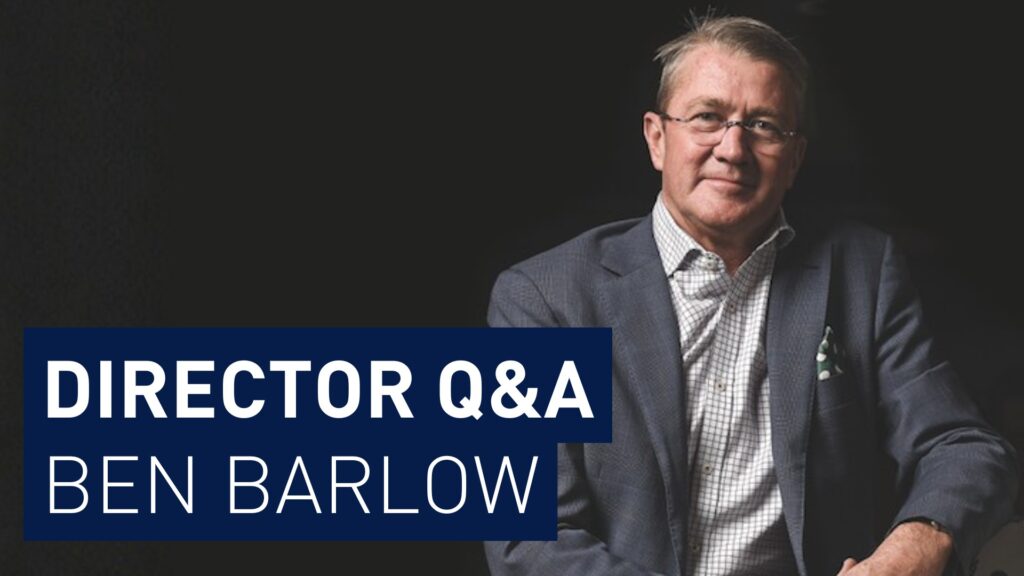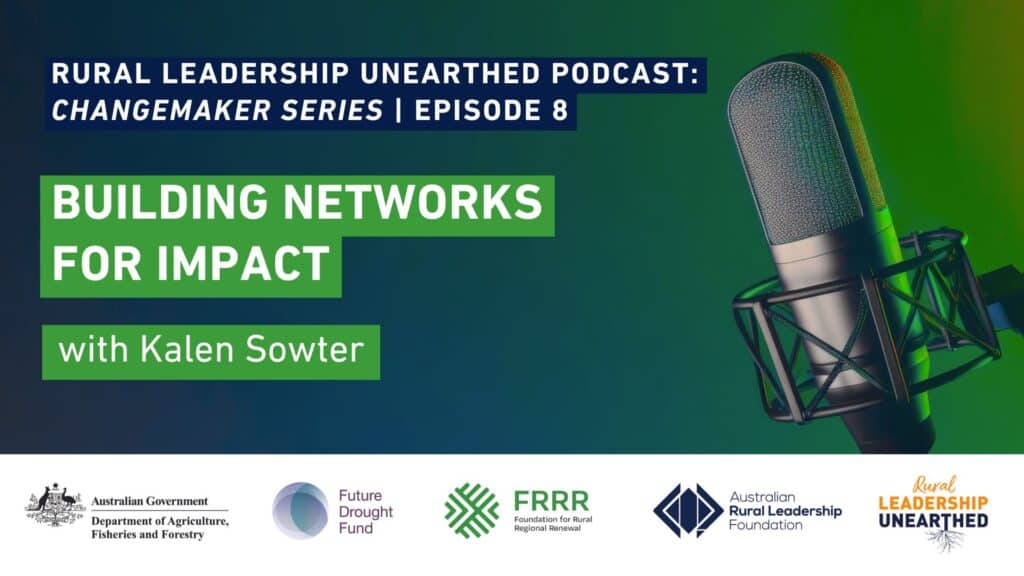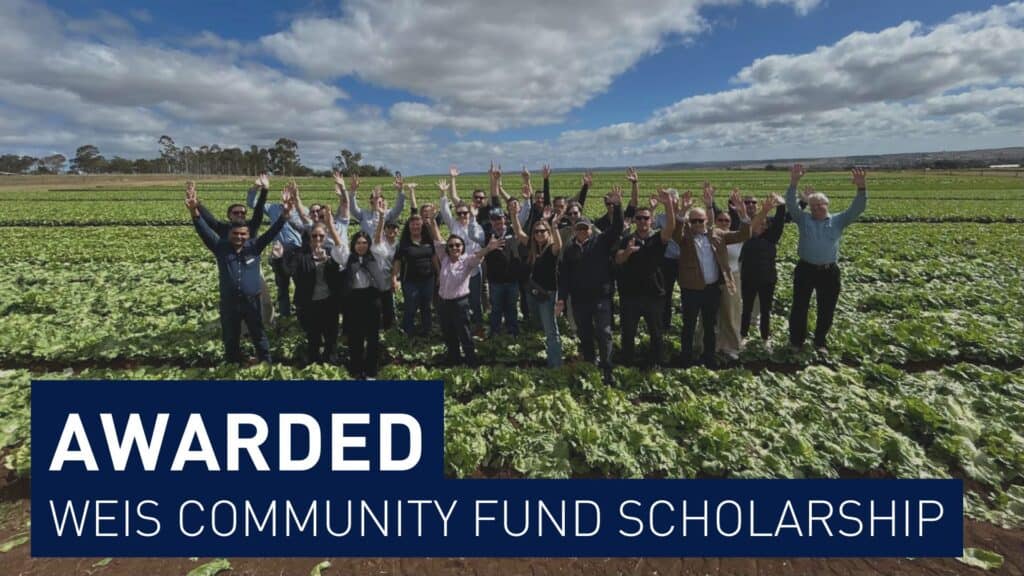Author: Gabrielle Hall
Julia Harpham, a pioneering New South Wales teacher and cattle farmer, shares her remarkable journey of fostering community integration between African refugees and a small town. Explore how her initiative revitalized a region, faced challenges during drought, and shaped policy for future resettlements. Through mentoring and resilience, Julia champions the power of connection, urging us to embrace change while staying rooted in the strength of community bonds.
Teacher and cattle farmer Julia Harpham first came to the nation’s attention when she opened her arms and the minds of her local community by facilitating the relocation of African refugees to a small northern New South Wales community in 2016.
It was a win-win plan – giving the refugees a home and community to live, work and integrate, and provide a much-needed boost to seasonal staffing and new life to an ageing community.
Julia admits it was a happy accident that the plan even came to fruition. A chance meeting with Emmanuel Musoni from the Great Lakes Agency for Peace and Development, who was assisting refugees to re-settle into regional Australia.
A partnership is born
At the time, the little district of Mingoola – with just a school and hall – was in need of workers and people in an attempt to continue to prosper into the future.
The refugees were keen to reconnect with their agricultural past.
So, a partnership was born.
The arrival of four African families to Mingoola – “in the middle of nowhere” – provided a number of enriching spin-offs for the region.
It meant the local school could re-open. Locals and refugees enjoyed shared food and parties and community events.
And while Mingoola had been no stranger to multiculturalism over the years, with “Chinese, Indigenous, British, Italian, Spanish, Portugese and Dutch” all living harmoniously, Julia said it paved the way for new friendships.
“It really meant there was an opportunity to meet and live with people we might not have ever known,” she said.
“The biggest thing it showed was that all people are the same, no matter where they come from, they want to be happy with their family, and family and community are extremely important to us.”
Julia was recognised for her efforts, awarded the 2017 New South Wales Regional Woman of the Year. She and husband, Philip – a local vet – were also awarded the Tenterfield Citizens of the Year award.
Drought devastation
The refugee initiative was not without its challenges. Like so many areas in regional Australia, a lack of housing was a major stumbling block.
And then came a devastating drought.
“It was so terrible, 2019/2020 was just so awful with the drought,” Julia said.
“Aside from that, we couldn’t even guarantee the refugees a house, so it was quite limited in the number of families we could welcome in.
“The families moved away when the drought came, but it doesn’t mean that we lost connection.
“The kids still come back, we still talk to a lot of the parents quite often.
“What perhaps it did show some of the refugees was that even though it was their dream to live in the country like they did in Africa, perhaps it wasn’t the most realistic for their own means here in Australia.”
The school has gone back into “recession”, the refugees have moved away, but all was not lost.
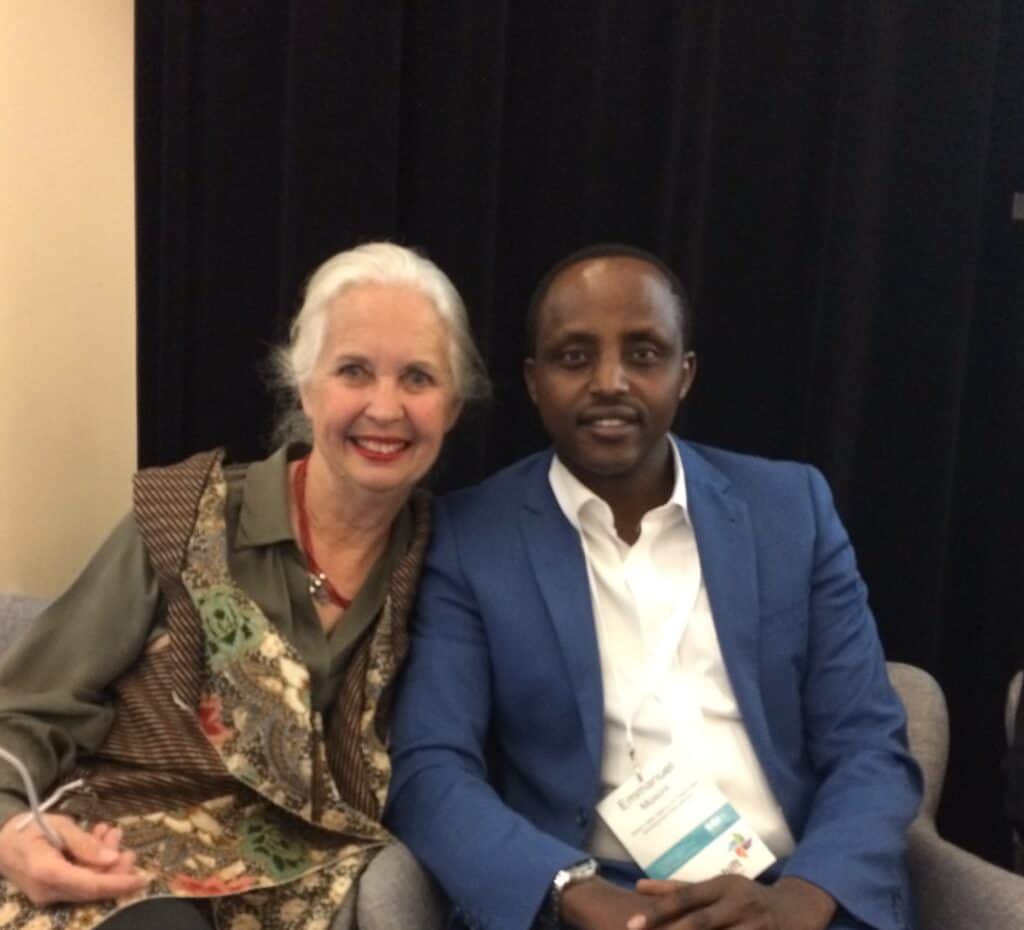
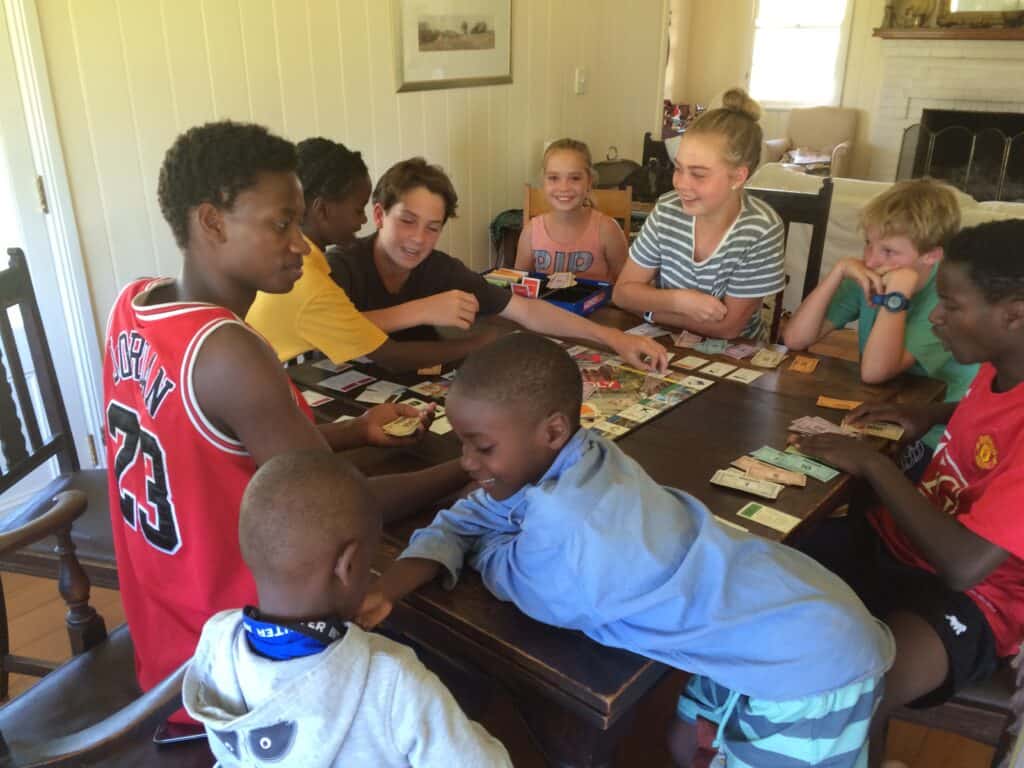
Not all is lost
The project helped shape the future for other refugees looking to settle in regional Australia. Julia and Emmanuel have been instrumental in the development of policy and resettlement toolkits based on the Mingoola experience.
“We were able to tell them what we did well, what we did badly or could have done better,” Julia said.
“It was what needed to be in place before we brought four families into the middle of nowhere. I was involved in writing that toolkit which is a very valuable document for regional Australia.”
Drought, an experience shared
Aside from the refugee project, Julia is a mother, grandmother, farmer, a teacher with a wealth of experience under her belt – not least her first posting at a remote school on the Northern Territory/ Queensland border.
She has experienced community in a range of settings, including a relished opportunity to live on the Solomon Islands where Philip worked as a cattle development officer.
She is positive and wise and insightful, and so it was little wonder Julia was tapped on the shoulder to be part of the Drought Resilience Leaders Development Program.
She says it opened her eyes to the realisation that rural communities – no matter how diverse – all share a similar bond and challenges.
“No community can be strong unless it’s a strong community,” Julia said.
“Developing ties and links and networks within communities is very important.”
So that is exactly what she helped drive in her own region, setting up networking workshops that identified the need for stronger links for local people.
“We had a few workshops where people tried to think about what was good, bad, what we wanted for the future,” Julia said.
“What basically came out of it was that the most important thing was to have a community network. Back in the day when I was a child we had ‘party lines’ and people used to sit and talk for hours through the telephone exchange, but that communication between people has gone down a bit.”
The modern-day solution was to start a local WhatsApp messaging group to keep people connected.
Passion to share knowledge
Julia’s wealth of knowledge and experience made her the perfect mentor candidate for the National Mentoring Program.
And again, it is connection that drives her to be involved.
“It’s really about support systems in drought-affected communities and sharing what works and what doesn’t,” Julia said.
“I think we all learned a lot during the drought experience, it’s important that the past experience is listened to as well as of course, lots of change that’s come out of it.
“The drought really shocked a lot of people into thinking about what the future holds and the reality of climate change, I honestly believe that there’s been a lot more acceptance that this is going to happen over and again.
“We’re going to have a big drought, then a big flood and then another major event.
“The world is changing and we will have to face whatever is thrown at us, so the mentoring program to me is really about connecting with other people and listening to them.”
Listening ear is the greatest gift
So inspired by the program, Julia has signed up to another mentoring program, and she said both reinforced what she already knew to be true.
“To me, a mentor program is incredibly valuable because it provides a level of anonymity to someone who might be struggling with how they’re going to go about doing something and who just want to talk to someone who is not involved directly,” she said.
As a former teacher, Julia said she could see great merit in establishing a mentoring program for young teachers and other professions.
“There might just be someone like me who worked as a teacher, who can sit and just listen to someone in tears, exhausted because they can’t deal with it,” Julia said.
“I think all professions should be thinking about doing something like this, it’s not something that costs a lot of money, but it can have a huge impact.”
A listening ear is the greatest asset of a mentor, according to Julia who declares “a good mentor doesn’t give advice”, unless it is on day-to-day tips for making life or business a little easier.
But there is one very clear message she has for her mentees.
“You can do anything you like in life if you really want to,” Julia said.
“You can get rid of barriers if you want to get rid of them badly enough.
“As a mentor I’d like to say, follow your dreams. As a mentor I’m asking, what is your dream? What is it you really want? And how do you achieve that?
“I think developing resilience in any situation means to also accept change, which some farming communities or people in industry have found quite difficult.
“But there is always something better coming along. There’s also a lot of things that never change, so we all have to be aware of what is good about our past and what might help to make things better in the future.”
The National Mentoring Program is part of the Helping Regional Communities Prepare for Drought Initiative delivered in partnership with the Foundation for Rural & Regional Renewal under the Australian Government’s Future Drought Fund.


